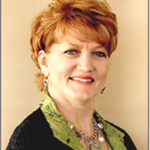We have all heard the statement, “He gets that from his father,” or “She’s just like her mother.” It’s true we get our personality traits from our parents, only it’s not just a learned process. Part of our personality is passed on to us the same way we get our eye and skin color – through genetics.
In an interview at The DNA Files, Robert McCrae said, “We have to make a distinction here between traits and behaviors. Personality traits are dispositions. They are tendencies. Behaviors can be different in different cultures. They can be different at different points in the life span. . .”
If Robert McCrae’s statement is true, than we need to look at the study of personality with a broader view than a simple personality test. People hate being pigeonholed and may feel “labeled” by being put in a category, but just the opposite is happening when we fill out a personality profile. By identifying basic personality traits, you are able to separate what you can and cannot change about your personality traits, freeing you to be your real authentic self. The reason for the personality profile is to give a starting point for our journey of self awareness, not a label.
Most personality systems on the market are based on four primary categories and then mixed into sub-categories or blends. The easiest system to understand was handed down to us from the Greeks (Hippocrates). The four categories are:
Playful Yellow. Fun loving, talkative, creative, distracted, and a bit naïve.
Power Red. Hard worker, take charge, thinks BIG, opinionated, and a bit unsympathetic.
Proper Blue. Focused, analytical, precise, private, and a bit on the picky side.
Peaceful Green. Easy going, kind, slow moving, un-opinionated, and can be a bit on the lazy side.
When talking about personality, we need to take into consideration both traits and behaviors. Traits tend to fall into these three categories:
• Personality
• Birth Order
• Gender
While behaviors are nurtured in these three arenas:
• Childhood experiences
• Adult experiences
• Spiritual bias (moral standards)
Developing your personality is a bit like playing poker. Cards are dealt – and you just get what you get, but the game is won or lost by the skill in which you play those cards. Let’s turn over those personality trait cards and see how they influence our game.
Personality – Here’s where genetics comes into play. Research has shown that our inclinations are motivated by our genetic code – introvert, extravert, ambivert, aggressive, laid back, overly talkative or quiet. We can modify these traits in order to behave in a respectable manner, but they are not going to go away, they will always be the cards in our hand. Personality traits will influence our behavior, sometimes even more than our learned behavior.
Birth Order – First born, Middle, Last born or Only, help form our place in the tribe. First borns tend to be more aggressive and have an overly developed sense of responsibility, making them look more like a Powerful Red type personality. While last borns tend to be a bit more “que sera,” or laid back with the attitude of, “It’s not my job man,” giving them a Peaceful Green tone to their temperament. Middle children are the more balanced, learning to deal with older siblings as well as younger ones giving them a bit more flexibility, making them look Playful Yellow. Middles may feel overlooked and without a special place in the family, but in reality, their birth order provides a platform for great success. Only children tend to pull towards the Proper Blue personality traits, as their world is usually very ordered and quiet with a focus on “self.” Our perceived place in the tribe plays a huge part in our personality’s focus.
Gender/Sex – Have you noticed that men and women are different?! Hormones and gender roles can intensify some personality traits like aggressiveness or mood swings. For example, Powerful Red personality types are aggressive naturally, but a female Powerful may not be aggressive in the same manner as a male Powerful. Women tend to be a bit softer around the edges than men, but a Peaceful Green male can be every bit as soft and nurturing as a female. Proper Blues reign supreme in the mood swing corner, but add a dose of PMS to a Playful Yellow and you can have as much drama as any soap opera can deliver. Our sex/gender does make a difference in our reactions to life.
These three categories: personality, birth order and gender, stay consistent. As we mature we learn to handle the struggles they present. The next three categories offer more diversity and choices.
Childhood experiences – Here’s where we develop our belief system. During childhood our family structure frames what we think about ourselves, I am: smart, stupid, cute, ugly, loved, unlovable, etc. or I am not: going to be like ____, doing your plan, going to rock the boat, going to do bad things, etc. Self talk is put into play and guides our future decisions.
Adult experiences – Life happens – every day! It molds us. Issues like death, divorce, being single, married, parenthood or childless, educated, poor or wealthy, struggles, privileges, etc. all play apart in how we approach life. Too much adversity tends to make us less optimistic, while good fortune breeds a “can do” attitude. During our adult years we either follow our childhood self talk, or we change it to support our new goals and desires, no matter what our personality type might be.
Spiritual bias – This is one of the most important parts of personality development, because it’s where our morally is formed, deep within our soul functions – mind, will and emotions, which is morethan just head knowledge. Culture can play a huge part in forming this foundation, as well as religious convictions. Most people have an internal compass or conscience directing them toward right verses wrong behavior, but when our moral code is violated, we feel guilt, shame, anger, etc. which lead to separation or behaviors outside our natural tendencies . Also, what is right in one culture, may be wrong in another, allowing natural personality behavior to look slightly different from culture to culture. German culture values hard work and accomplishment, giving it a Powerful Red vibe, whereas France has a more private artsy culture giving it a more Proper Blue ambiance. Our spiritual bias influences how we handle all the other aspects of our lives.
As we can see, trying to understand personalities is complicated, but by examining one part at a time, we can start to understand the basics. The first step is to find your basic category and proceed from there. You may even want to find a Life Coach who is trained in understanding personality traits to help on the journey of self-awareness and maturity.
Taking into consideration these 6 elements, there is no way anyone can be exactly like someone else, no matter how many people grace the face of the earth. YOU are – one of a kind!
 Kathryn Robbins is a Certified Personality and Life Coach, speaker, and co-author of What Makes You Tick – Adult Personality Profile, The You Zoo – Children’s Personality Profile, and Color My Personality – Coaching Journal.
Kathryn Robbins is a Certified Personality and Life Coach, speaker, and co-author of What Makes You Tick – Adult Personality Profile, The You Zoo – Children’s Personality Profile, and Color My Personality – Coaching Journal.
To take a FREE personality profile, visit personalityprinciples.com
See Kathryn Robbins in person for her seminar “The “ME” I Need To Be”, Saturday, February 25th at 11:00am.

No comments yet.